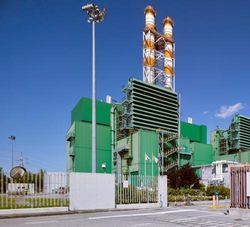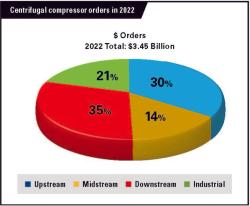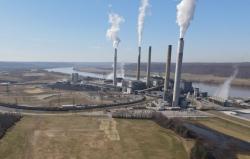
OR WAIT null SECS
© 2024 MJH Life Sciences™ and Turbomachinery Magazine. All rights reserved.
How mobile gas turbines stepped in during an Algerian summer
The 12 Mobilepac gas turbine packages in Algeria[/caption]
By Rami Morsi
In 2015, two weeks before the Muslim holy month of Ramadan, the Algerian city of M’Sila sustained a series of crippling power outages when two of its main electricity generating plants shut down.
For a metropolis of more than a million people to enter Ramadan without sufficient power would have disrupted one of the most important annual celebrations in Islam. During Ramadan, the month of fasting that precedes Eid-Al-Fitr, people abstain from eating and drinking from sunrise to sundown before gathering each evening for dinner with family and friends to break the fast.
For most of its nearly 1,400-year history, of course, Ramadan was observed by people who didn’t depend on electricity. But in modern times and in urban settings, housing and daily life are dependent on lights, running water and, for the fortunate, air conditioning. Potential rolling blackouts would make it difficult for the people in M’Sila to experience the full spiritual and cultural experience of Islam’s holy month.
The power plant outages had wiped 400 megawatts of electricity off the grid, enough to power hundreds of thousands of households. Sonelgaz, the government-owned power company in Algeria, needed help restoring the M’Sila grid to full capacity in time for Ramadan. The utility turned to PW Power Systems for an emergency solution.
PW Power Systems (PWPS) specializes in manufacturing flexible and powerful turbines that are often deployed for long-term, utility-scale operation. We also specialize in mobile, emergency response, as well. It was PWPS’ emergency response solutions, for example, that provided 135 megawatts of emergency power for Tokyo Electric Power Company (TEPCO) after the Tohoku earthquake in 2011.
PWPS helped the Algerian government restore 50 megawatts of power in 2011 after aging power plant equipment failed in Kabartene in the Adrar region, the country’s second-largest province. The speed of that deployment earned us the gratitude of Sonelgaz and government agencies, and it led to an expanding relationship. By September 2013, we had contracts to install 54 emergency response gas turbines to stabilize the power grids in the north and remote sites in the south of Algeria.
The gas turbine package includes all the necessary transformers and support equipment that can be moved in a few shipping containers and transported in two Antonov cargo planes for rapid worldwide delivery. When pre-commissioned, this energy solution, which can be used to create microgrids, is set up and operating at full capacity at site-ready locations within 24 hours. The units are capable of controlling grid frequency, providing stability to avoid power fluctuations.
With high thermal efficiency, and rapid installation time, an emergency mobile package powered by an aero-derivative engine is able to generate 30 megawatts of power, enough electricity to light 30,000 homes.
As Ramadan was approaching in June 2015, we already had eight MOBILEPAC units delivering power to M’Sila. With the failure of the utility’s two main generating plants, Sonelgaz suddenly needed four more emergency response gas turbine units added to the M’Sila system; and, they had to be up and running without delay. PWPS was in a race with Ramadan.
As we worked overtime to ensure that the last four units could be delivered and put into service, we faced a host of challenges. To start, it was the time of year when many employees and contractors already planned to be in their hometowns and villages for the month.
Additionally, the heat that can make all-day fasting an ordeal places a special strain on field technicians and local workers, making it difficult to maintain productivity especially under a hurry-up timetable. But handling emergencies is woven into our corporate culture. We soon had a team of dedicated engineers and local workers, along with our expatriate colleagues, who were able to accelerate the commissioning schedule.
It wasn’t simply a matter of hooking up four more gas turbines. The eight we had already installed were connected to the 220-kilovolt portion of the local grid. M’Sila also has a 60-kilovolt portion of its grid to which our new units would be connected. That required us to devise an electrical protection system tailored for the 60-kilovolt grid.
Sonelgaz also rallied to the cause. It cleared the path by making key decision makers available to conduct the necessary inspection “gate reviews,’’ checkpoint delays that had previously put the M’Sila project behind schedule. Through sheer determination and committed cooperation from Sonelgaz, our team was able to have the additional turbines generating power in time to avoid rolling blackouts. And we did it before the sun set and Ramadan officially began on June 17, 2015.
By the second week of Ramadan, all 12 gas turbine units were at full capacity in M’Sila as observant Muslims across the region, including many of my colleagues and me, broke the fast each evening.
(The author is Project Manager at PW Power Systems, a provider of energy solutions for the power generation and mechanical drive industries)



